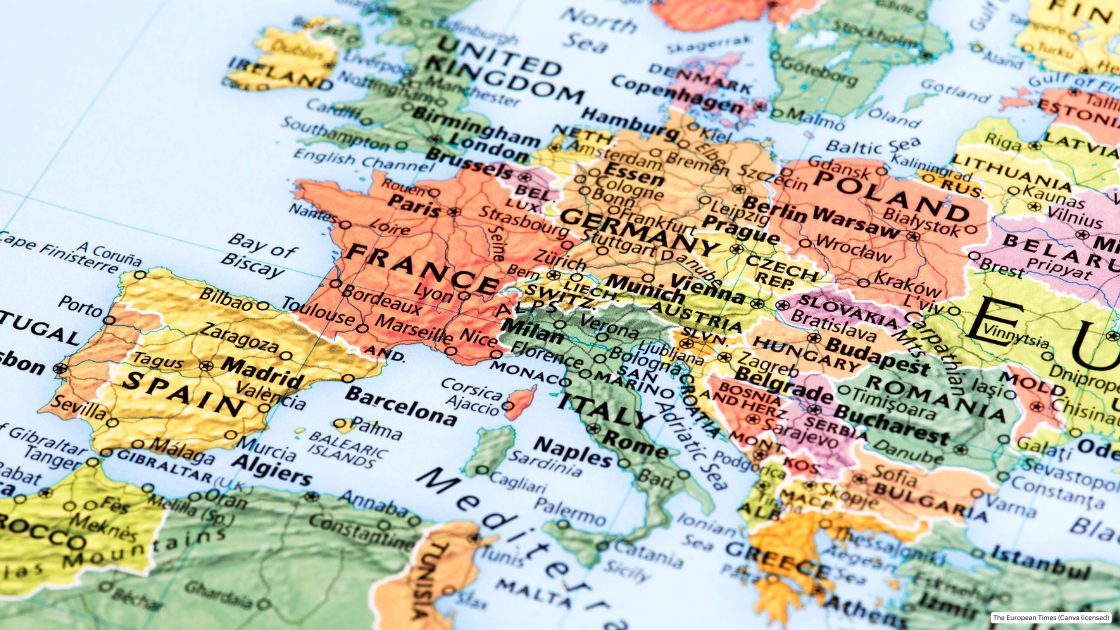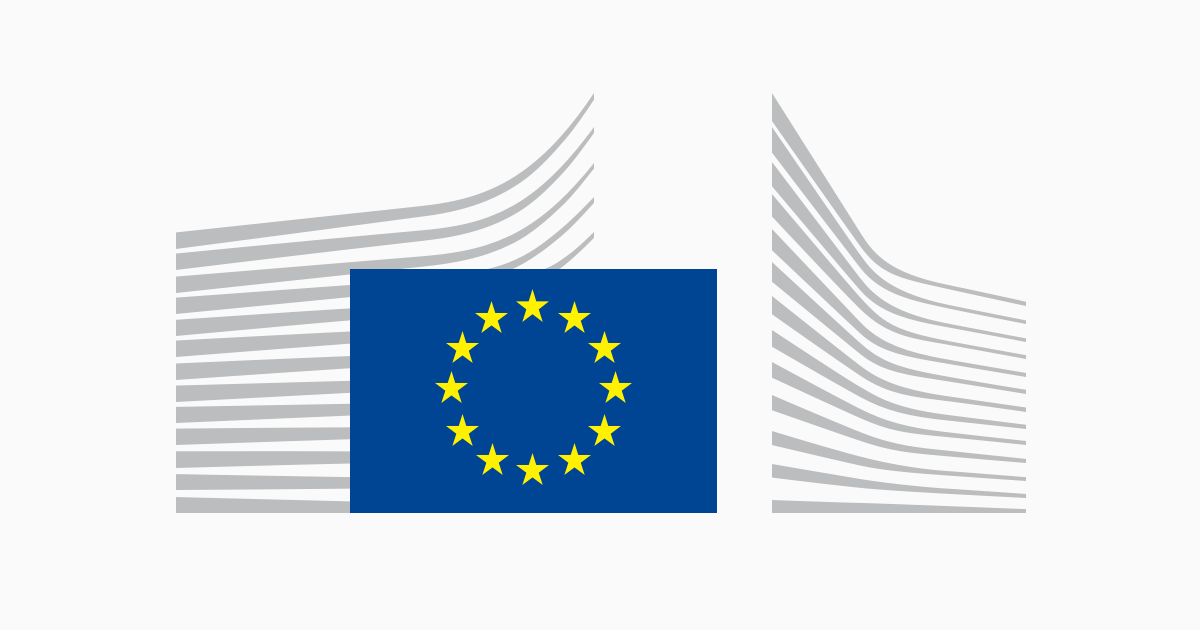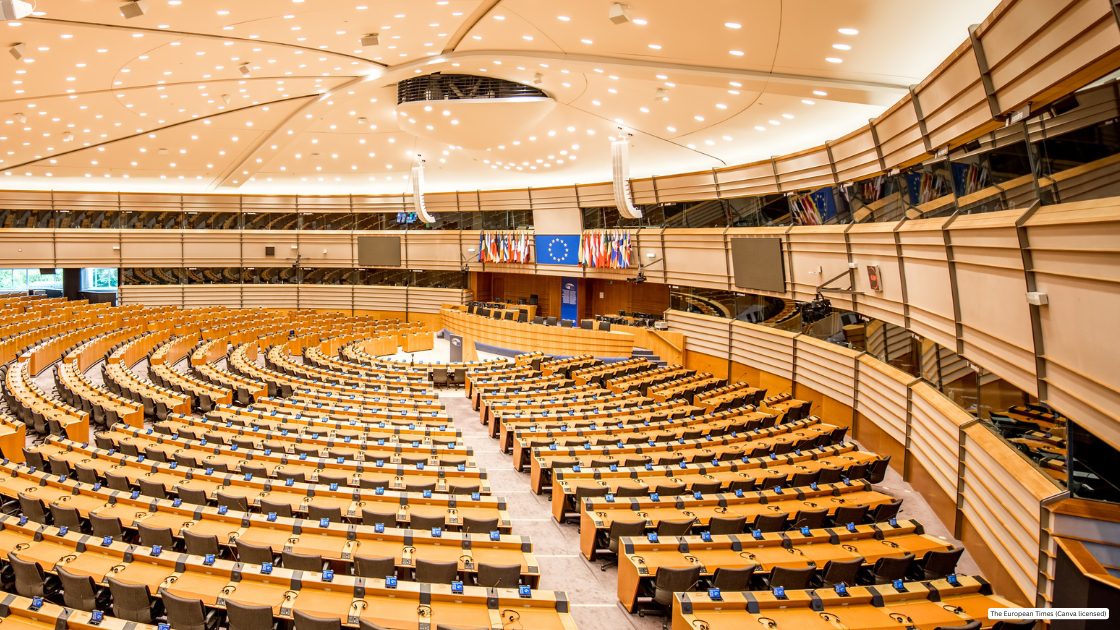Politics
Bolstering the cybersecurity of the healthcare sector



DISCLAIMER: Information and opinions reproduced in the articles are the ones of those stating them and it is their own responsibility. Publication in The European Times does not automatically means endorsement of the view, but the right to express it.
DISCLAIMER TRANSLATIONS: All articles in this site are published in English. The translated versions are done through an automated process known as neural translations. If in doubt, always refer to the original article. Thank you for understanding.

The Commission has presented an EU Action Plan to strengthen the cybersecurity of hospitals and healthcare providers. This initiative is a key priority within the first 100 days of the new mandate, aiming to create a safer and more secure environment for patients.
In 2023 alone, EU countries reported 309 significant cybersecurity incidents targeting the healthcare sector – more than any other critical sector. As healthcare providers increasingly use digital health records, the risk of data-related threats continues to rise. Many systems can be affected, including electronic health records, hospital workflow systems, and medical devices. Such threats can compromise patient care and even put lives at risk.
To address these challenges, the EU is working to strengthen the healthcare sector and make it more resilient against cyber threats. The new Action Plan builds on existing legislation, such as the EU-wide legislation on cybersecurity, and extends its scope to include general practices. It focuses on prevention, detection, impact mitigation and deterrence of cyber threats. The Plan also aims to establish a pan-European Cybersecurity Support Centre to provide more tailored guidance to hospitals and healthcare providers. By the end of the year, it will be further refined through a collaborative approach and will be rolled out progressively over the next 2 years.
Digitalisation of the healthcare sector enables better services to patients through innovations, along with many other benefits. The EU remains committed to fostering a healthcare environment where technology empowers patients, enhances care, and supports healthcare professionals.
For more information
Cybersecurity of hospitals and healthcare providers
A new plan for Europe’s sustainable prosperity and competitiveness
Cybersecurity
Press Release: Commission unveils action plan to protect the health sector from cyberattacks
European action plan on the cybersecurity of hospitals and healthcare providers
European Union Agency for Cybersecurity (ENISA)
Source link
More from the author
– EXCLUSIVE CONTENT –
Politics
New EU rules will reduce packaging waste


© FRVS+MPCP 2022. The European Times® News is registered as an EU Trademark. All rights reserved. The European Times® and the logo of The European Times® are EU trademarks registered by FRVS+MPCP.
Members/Partners of

About Us
Popular Category
DISCLAIMER OPINIONS: The opinions of the authors or reproduced in the articles are the ones of those stating them and it is their own responsibility. Should you find any incorrections you can always contact the newsdesk to seek a correction or right of replay.
DISCLAIMER TRANSLATIONS: All articles in this site are published in English. The translated versions are done through an automated process known as neural translations. If in doubt, always refer to the original article. Thank you for understanding.
DISCLAIMER PHOTOS: We mostly used photos images that are readily available online, from free sources, or from the people promoting the news. If by any chance it happens that we have used one of your copyrighted photos, please do not hesitate to contact us and we will take it down without question. We do not make profits as this is a not for profit project to give voice to the voiceless while giving them a platform to be informed also of general news, and it is completely free.
Editor Picks
Politics
New rules for better cross-border enforcement of traffic laws

The European Commission welcomes the Parliament and Council’s final adoption of the Directive to strengthen cross-border enforcement of road traffic rules.
While previous EU rules improved compliance with road safety regulations by non-resident drivers, a significant gap remains, with approximately 40% of cross-border offences going unpunished due to challenges in identifying offenders or enforcing fines. The newly adopted rules tackle these shortcomings by enhancing cooperation among Member States, streamlining offender identification, and facilitating fine enforcement.
Commissioner for Sustainable Transport and Tourism, Apostolos Tzitzikostas said: “Every year, more than 20,000 people die on Europe’s roads. To bring these unacceptable figures down, it is crucial to ensure a real deterrent effect through the enforcement of road traffic rules. Drivers must know that if they break the rules and endanger others, they will face the consequences of their actions, whether driving in their home country or abroad.”
Cooperation between national authorities will not only focus on the most common and serious offenses like speeding, drunk and drugged driving, but also on other hazardous behaviours:
- not keeping a safe distance from the vehicle in front;
- dangerous overtaking;
- dangerous parking or stopping;
- crossing one or more solid white lines;
- driving in the wrong direction;
- failing to respect the rules on the creation and use of emergency corridors or on giving way to emergency service vehicles;
- using an overloaded vehicle;
- not respecting the rules on road safety-related vehicle-access restrictions;
- hit-and-runs;
- not respecting the rules at railway level-crossings.
Member States will report on issues concerning offences committed by third country drivers. An IT portal will give citizens easy access to information on the road safety rules in place in each Member State, but also appeal procedures as well as fines applied, enforcement schemes and available means for payment of the fines.
Safeguards for the protection of personal data are reinforced through clear roles and tasks for national administrations in cross-border enforcement procedures, provisions on data security, clear deadlines and guidance on the language to be used when communicating with citizens.
Next steps
The new rules will be published in the Official Journal of the European Union (OJ) in the coming days. Member States will need to transpose them into national laws within two and a half years, following publication in the OJ.
Source link
Politics
Copernicus Global Climate Report 2024 confirms last year as the warmest on record, first ever above 1.5°C annual average temperature



DISCLAIMER: Information and opinions reproduced in the articles are the ones of those stating them and it is their own responsibility. Publication in The European Times does not automatically means endorsement of the view, but the right to express it.
DISCLAIMER TRANSLATIONS: All articles in this site are published in English. The translated versions are done through an automated process known as neural translations. If in doubt, always refer to the original article. Thank you for understanding.

The Copernicus Global Climate Highlights Report 2024, published today, confirms 2024 as the warmest year on record and the first to exceed 1.5°C above pre-industrial levels for the annual global average temperature. Last year was also the warmest for all continental regions, including Europe, except Antarctica and Australasia.
As also highlighted in the 2023 European State of the Climate Report and the European Climate Risk Assessment, the European continent has been warming twice as fast as the global average since the 1980s, becoming the fastest-warming continent on Earth. European land in the Arctic remains the fastest-warming region on Earth, and changes in atmospheric circulation are favouring more frequent summer heatwaves. Likewise, glaciers are melting and there are changes in the pattern of precipitation.
The overall frequency and severity of extreme weather events are increasing. Sea surface temperatures remained exceptionally high, with July to December 2024, being the second warmest on record for the time of year, after 2023.
The EU is committed to supporting global climate action and becoming climate-neutral by 2050. It has agreed on targets and legislation to reduce greenhouse gas emissions by at least 55% by 2030 and the Commission has already recommended a 90% net GHG emissions reduction target for 2040. The Commission published a Communication in April 2024 on how to effectively prepare the EU for climate risks and build greater climate resilience.
Copernicus, Europe’s eyes on Earth, is the Earth observation component of the European Union’s Space programme. Funded by the EU, Copernicus is a unique instrument that looks at our planet and its environment to benefit all European citizens.
Source link
More from the author
– EXCLUSIVE CONTENT –
-

 EU & the World6 days ago
EU & the World6 days agoWho Was Jimmy Carter’s Vice President? Find Out
-

 EU & the World6 days ago
EU & the World6 days agoAmy Carter’s Husband: Meet John Joseph Kelly
-

 EU & the World6 days ago
EU & the World6 days agoAmy Carter’s Children: How Many Kids She Has
-

 EU & the World6 days ago
EU & the World6 days agoJimmy Carter’s Grandchildren: Meet all of His Grandkids
-

 Sports4 days ago
Sports4 days agoMilan-Rashford, Zlatan Ibrahimovic’s thoughts.
-

 EU & the World6 days ago
EU & the World6 days agoPeter Yarrow: 5 Things to Know About the Late Singer
-

 EU & the World6 days ago
EU & the World6 days agoHow to Watch the 2025 SAG Awards: Can You Stream the Show?
-

 EU & the World6 days ago
EU & the World6 days agoJJ Redick’s Wife: About Chelsea Redick & Their Marriage








